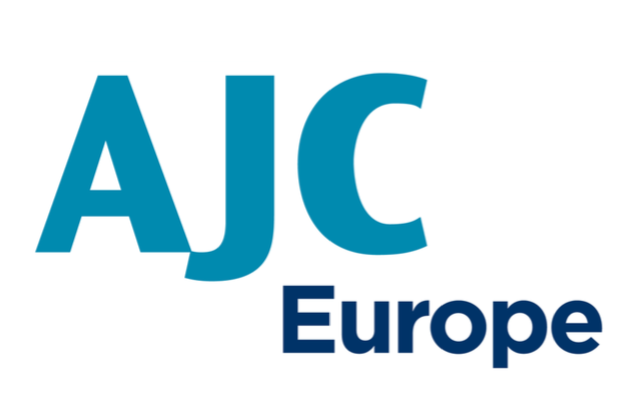AJC Europe Statement ahead of the December 10-11 EU Summit and the “fight against terrorism and violent extremism.”
AJC Europe Statement ahead of the December 10-11 EU Summit and the “fight against terrorism and violent extremism.”

Brussels, 10 December 2020
AJC Europe Statement ahead of the December 10-11 EU Summit dealing with the “fight against terrorism and violent extremism.”
From its birth over 114 years ago, the American Jewish Committee has been committed to the defense of liberal democracy and human rights. The rise of radicalism and violent extremism in Western societies—be it from the far right, far left or Islamists—threatens our freedom, our values and Jewish life in particular. As much as these extreme ideologies may be at odds with each other, their proponents share a common obsession: antisemitism and anti-Zionism.
The recent deadly attacks in Vienna and the beheading of a French teacher have once again reminded us that we must persist in the fight against Islamist terrorism. Ahead of today’s EU summit, AJC Europe makes the following recommendations:
1. Counter-terrorism does not start and end with police and intelligence work. It begins with confronting the underlying radical ideologies, ideas and concepts, irrespective of whether their proponents (individuals or organizations) openly propagate violence or not. If we fail to understand and oppose Islamist concepts and networks, we will not only fail to contain terrorism, but we will also undermine social cohesion and perpetuate the creation of parallel and polarized societies.
2. In line with the Hippocratic principle of “First, do no harm,” EU member states and the European Commission ought to therefore critically review the organizations and individuals they engage with and fund. All too often we empowered groups that ultimately oppose our democratic values and often lead to violence. For example, France banned last week the “Collective against Islamophobia in France,” notably because some of its members cultivated close links to extremists, including jihadists who fought in Syria in the ranks of Al-Qaeda. And yet it received funds from the European Commission. Governments should work to enfranchise all minorities in our societies, but we must not empower fundamentalist and extremist movements that do not represent the views or best interests of their communities.
In this context, it is particularly perfidious when extremists, or their apologists, abuse the memory of the Holocaust to falsely portray themselves as the victims of alleged state oppression. Most recently, Austrian political scientist Farid Hafez likened Austrian police raids on suspected Muslim Brotherhood and Hamas organizations to the Kristallnacht, the 1938 Nazi pogroms against the Jews. It is a mark of free societies that any government action can be criticized. However, this abuse of the memory of six million murdered Jews is not meant to start but to stifle open debate by demonizing democratic governments.
3 Just as we must ensure that we are not ourselves funding local Islamist ideologues who oppose basic freedoms and human rights, we must also protect our free societies from unfree “third countries,” such as Iran, Turkey, and Qatar, which teach and preach extremism. The European Parliament resolution of 12 December 2018 on the findings and recommendations of the Special Committee on Terrorism rightly “calls on the Member States to ban funding from third countries that oppose democracy, rule of law and human rights.” Following the example of several member states, the EU and its member states ought to follow Parliament’s lead and end unwanted foreign interference. When anti-democratic powers control our educational and religious systems, such as the Iran-funded Islamic Center in Hamburg, the members of those communities become the victims, along with our commitment to the rights of all.
4. The prevention of Islamist indoctrination must be flanked with the positive transmission and implementation of our values. This must include the fight against any form of discrimination or stigmatization against Muslims in our societies. Barriers to full participation must be removed, and we need educational programs to foster a true sense of integration. Freedom of religious expression must be upheld, even as freedom to criticize religion must be protected.
5. Europe must act decisively to ban associations linked to terrorists. It is self-defeating that the EU created the illusion of a bifurcated Hezbollah, recognizing only the so-called “military wing” as a terror group but allowing its political arm to operate throughout Europe. Fortunately, already six EU member states — Estonia, Germany, Latvia, Lithuania, Slovenia and the Netherlands—in addition to the UK have acted on their own. Others must follow.